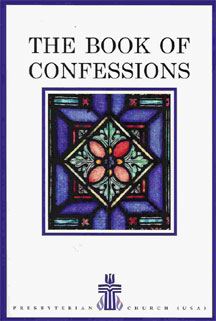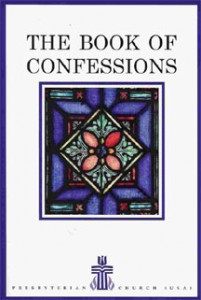Current Reflections on the Confession of Belhar – by Cynthia Holder Rich
What is the Confession of Belhar REALLY about?
Firstly, gentle reader, know that I am aware of the current controversy that swirls around this document of faith birthed in crisis, violence and the use of imperial, colonial, and religious power to maintain order and oppress – and even kill – people who were poor and darker-skinned. In other words, the Confession of Belhar was written in a context of gross human sin – like all the other confessions in use by the Christian churches since people began writing down what they believe. It is those moments of great sin that clarify things for the theologians among us and forces them to speech.
The people want sex, so sex we shall discuss!
Yes, I know that sexual orientation, which was not, despite many claims to the contrary, the main issue at hand in the apartheid era in South Africa – sexual orientation is the lens through which many view the Confession of Belhar.
This baffles me, and then (because, despite indications to the contrary, I am not a complete fool), becomes understandable in some ways, and finally, saddens me greatly…
NOT because Belhar, like other confessions and creeds, cannot or does not speak into a host of justice issues — as a number of eminent scholars note, including Piet Naude (whose fine book, Neither Calendar nor Clock, is a must read if you actually want to understand the confession and who appears in this space later this week), but because we miss the main point by looking for something to focus on so that we won’t have to look at the central issue.
I am saddened because of the primary issues addressed by the Confession, which we, in our sinfulness, willfully ignore: race, power, and the chronic use of the church to use theological arguments to rationalize our sin. It is my belief that because we don’t want to deal with race and power and how we use these as the jumping off spot of great, powerful and damaging sin, a search was begun to find other lens through which to view the Confession – and sex is more powerful than race in exciting the masses, so sex it is!
But enough distraction – what about the Belhar???
Yes, indeed – the distractions of the present moment cannot be allowed to deny us access and attention for the wonderful, agonizing and faith-filled document at hand.
It occurs to me to wonder when I hear the voices raised against the Belhar whether people have actually read the piece. (click here if you’d like to right now) This speculation of mine is based in my wonder and awe of the trinity of themes on which the Belhar is based: unity, reconciliation, and justice. I am in awe because the people who wrote the Belhar were staring into the teeth of the apartheid monster, a monster constructed in part on a foundational ideology based on twisted, distorted readings of Reformed Christian understandings of the doctrine of election, which for my tribe is keystone. Staring into the face of the monster, those who wrote the Belhar kept their mind on higher things and called the church in their context to unity, reconciliation, and justice.
Speaking as someone who has dabbled a bit in power analysis, the raw courage of these subordinate players, members and pastors of a “daughter” church speaking to the leaders of their “mother” communion, their daring act and sheer audacity to think that they could call the church to anything makes me catch my breath. I have reflected on their courage while watching the events unfold in the Middle East and North Africa over the past months. I have reflected again watching the way that big money and big power are trying to hold people down and take away rights for which our forebears fought in our own US Midwestern states, and how the people are having none of it. When people who do not have power stand up to those who do and call – without violence – for change, for justice, for a reconciling of those who have been broken and torn apart by unjust distributions and uses of power – it forces reflection. It compels us to stop – look – listen for the ways that God is moving, for God is surely on the move in moments such as these.
The Belhar is about power – who has it, who doesn’t, and how God addresses this fundamental injustice.
The Confession of Belhar is about power, our relationship to power, and the Power of unity, reconciliation and justice which gathers us all together as the church (see article 1 paragraph 1). In particular, it is about the singular and unique power that resides in those who the world views as having none at all. Of course, in the church, we do not regard people as the world does; with Paul, we regard no one from a human point of view any longer. (II Corinthians 5:16)
Which is to say, this is our call…which at times we experience adequate grace to follow, and other times, not so much. The controversy about the Belhar and the way the discussion has been framed in various blogs and website postings demonstrates the way we cling to our all-too-human way of seeing.
I am hopeful, as I write this, that the Confession will pass. Of course, I’m biased, AS WE ALL ARE – my bias just comes with a bit more research behind it than some. (read here about that) At this moment, the vote is in the positive and I am optimistic about its passage. The key question is what happens next.
This kind of conversation has not ever happened in my own church, the PC(USA).
At the risk of being dinged by a variety of church historians, let me state that I do not believe that my own church has ever had a serious conversation about race and power that would match, much less rival, the conversation that ensued in the Dutch Reformed Church of South Africa after the Belhar was published. Some among you will remember the Confession of 1967, and you would be right so to do. Others will remember that the church split in 1861 over slavery and support of the Union, and that is also a memory to note here.
But what both of these instances in our history lack, which the history of the Confession of Belhar possesses, is the statement of people without power to those with power about the relationship between the two. That makes the Belhar something special. There is a spirit to it that is different. And when you add the Accompanying Letter, you have a collective document that speaks to the heart of what it is not to have power and to speak to those who do.
What I hope and pray will happen next – once we accept the Belhar and place it in the Book of Confessions – is that this serious, honest conversation about race and power will be given a resource on which to take place. Now is the acceptable time, brothers and sisters. This new-to-us Confession, a gift to us from our brothers and sisters in South Africa, can become for us the ground from which we learn to talk about realities we have denied and injustice we have ignored. This is a kairos moment for us; I hope and pray that we can see it and use it to God’s glory.
On Wednesday, Chris Iosso and Piet Naude will join the conversation.
PLEASE NOTE: The curriculum on the Confession of Belhar I authored for Congregational Ministries Publishing is now available, and can be ordered here.


